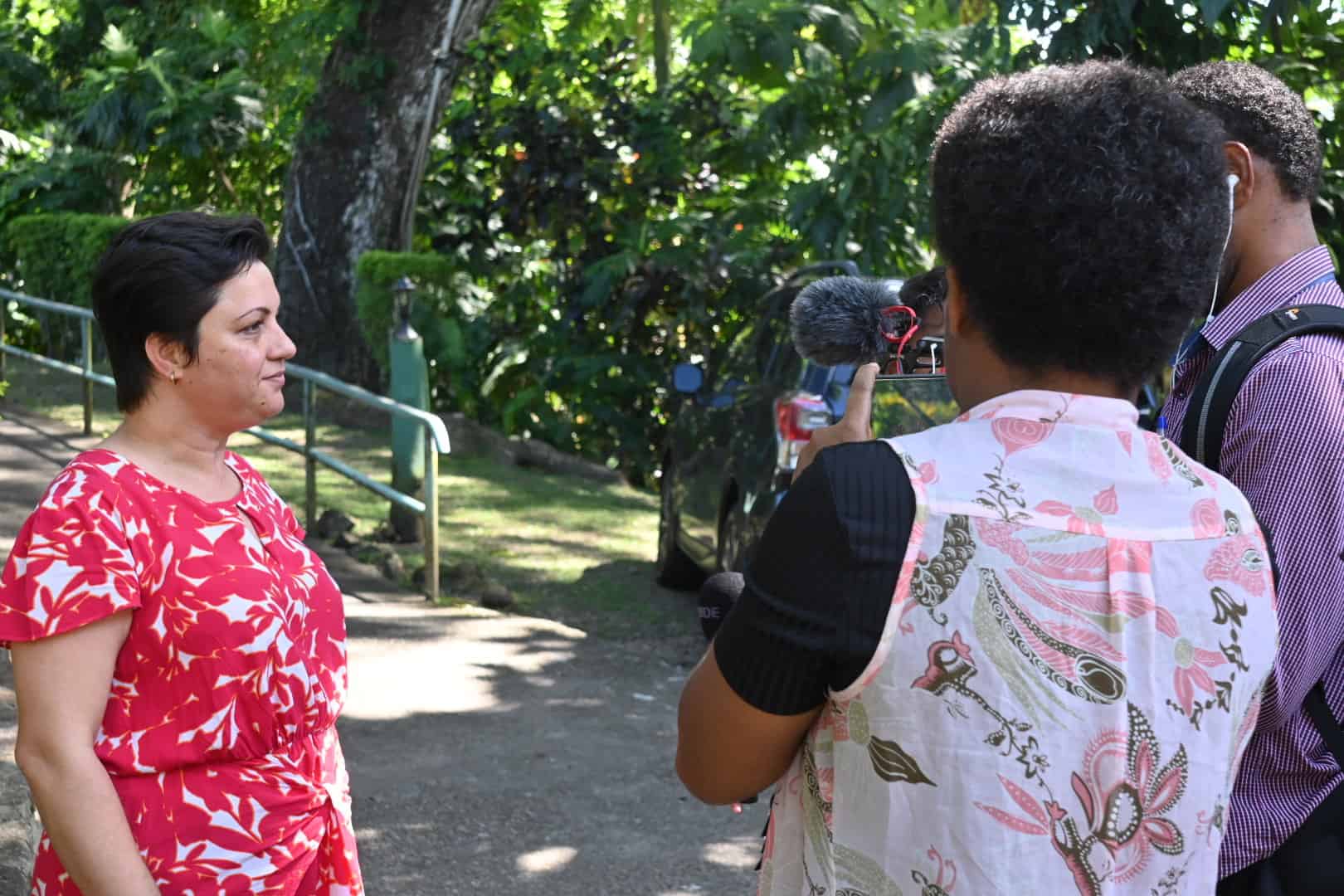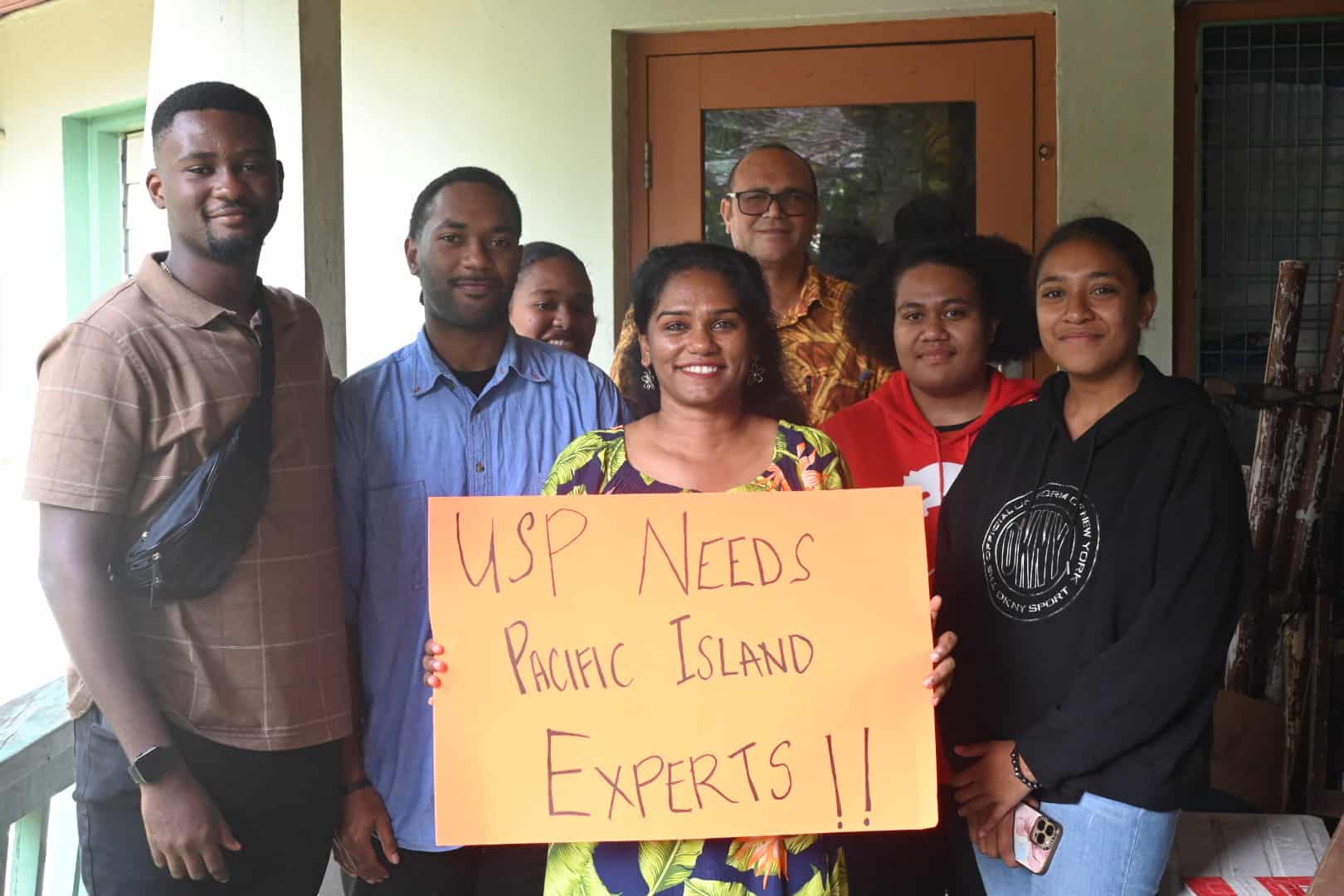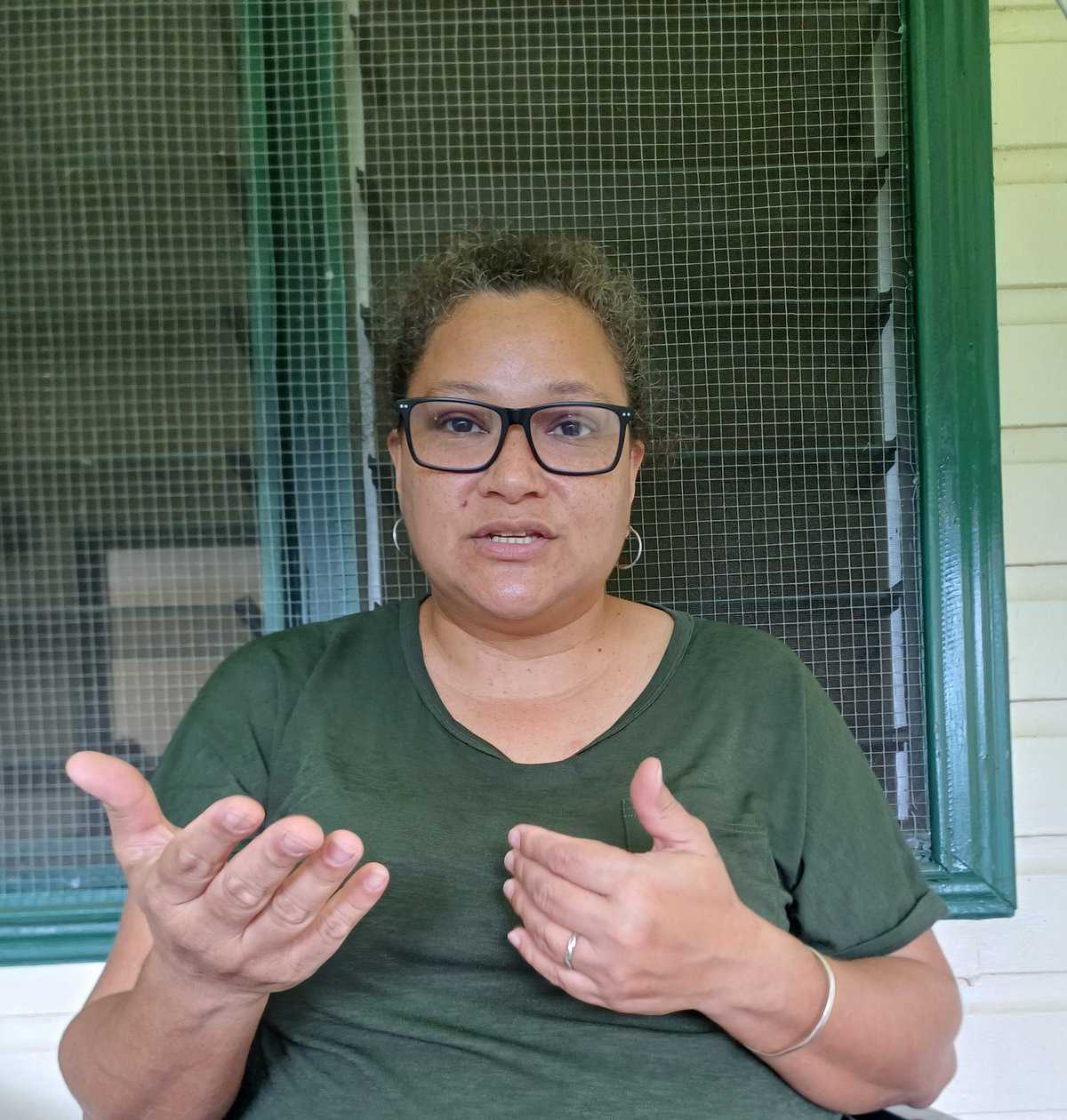University of the South Pacific staff in Fiji, where the University is headquartered, have voted to go on strike for the second time in five months, this time demanding to have Vice Chancellor, Professor Pal Ahluwalia removed.
Speaking during the voting process held at all Fiji campuses on August 14, the General Secretary of the Association of the University of the South Pacific Staff (AUSPS), Rosalia Fatiaki, said the move for strike action hinged on one demand: the removal of VC Pal Ahluwalia.
The industrial action was triggered by the summary dismissal last month of mid-career academic, Dr Tamara Osborne-Naikatini, who was Lecturer in the discipline of Biological and Chemical Sciences, as well as Discipline Coordinator. She was also President of AUSPS.
“This call for [the VC’s] removal came about as a result of the decision of the Vice-Chancellor to terminate the union President. And we feel that she was terminated unjustly, she was not given natural justice, and thus the staff feel that we need to make a stand. And that has led to a call for strike action,” said Fatiaki.
“So, when we have met the mandate, that will mean it will be in the interest of the management of the University to come to the union to negotiate. That’s the proper process. In this case, I’m not sure how it’s going to unfold,” she said.

Both the unions had earlier voted to go on strike in March citing grievances regarding pay rises, promotions policy changes and overworked teaching staff.
That matter was taken to mediation with Fiji’s Ministry of Labour.
Said Fatiaki: “Because the issue during the previous move for strike was salary adjustment, it was different. We went back to the table; we gave them one more chance to come to the table before we go on strike because we are mindful of the students that we serve. It’s going to affect thousands of students by taking that action. So, then we were able to negotiate and resolve the matter. So, there was no strike then.”
“The issue today is totally different. It will require maybe government, someone at the government level, to help mediate the issue. Because the call is a very strong call, and that is the removal of the Vice-Chancellor.”

While the unions had originally wanted to seek a mandate for strike action from their members over Osborne-Naikatini’s reinstatement alongside the call for VC Ahluwalia’s removal, the matter regarding Osborne-Naikatini’s termination now rests with Fiji’s Ministry of Labour.
According to Fatiaki, “It’s because the matter is with mediation, so we respect that, as we were advised by the Ministry of Labour that because the matter is with them, we cannot have a secret ballot for that.”
At the close of the ballot count, the unions reported that 96% of AUSPS members and 94% of USPSU members who showed up to the ballot voted in favour of strike action. The unions will now meet to set a date for the delivery of the mandatory 7-day strike notice.
“It’s relieving to see that staff have delivered the mandate,” Fatiaki said upon reporting the results of the vote. “They stood by what was discussed in the meetings.”
A media release issued by the University following the count, stated, however, that, “with over 1,300 staff across our 12 regional countries, membership of the two unions accounts for only 41% of its total workforce. Moreover, it is understood from unofficial numbers that those who voted in support of the proposition make up 25% of Academic and Professional Staff and 28% of Administrative and Support Staff.”
“In this instance, the University is confident that it will successfully challenge the claims and actions by the two unions concerned, which have been misleading in parts and untrue in others, in accordance with the ERA and associated legal processes,” the media release said.
The statement also claimed the support of USP’s Student Association, with Association President, Christopher Siliva stating that, “as major stakeholders of the University, the USP Students Association has been in regular communication with the management, including the Vice-Chancellor and President, Professor Pal Ahluwalia, regarding this matter”.
“Our primary focus remains on the students, and we will continue to coordinate with the management on potential mitigation strategies in the event of any strike action by the two staff unions to avoid any disruptions to our students,” Siliva said.

A group of students, however, gathered outside the voting venue with placards to show support to the staff unions’ efforts. They said that an overworked and discontented staff body lowers the quality of teaching the students are offered, through no fault of the teaching staff.
The students also spoke on the importance of Pacific experts such as Osborne-Naikatini in the field of biology, in furthering the region’s agenda in the areas of ecosystem preservation and climate control.
“The removal of Dr Osborne-Naikatini has handicapped the next generation of Pacific biological researchers,” a spokesperson for the group said. “This is the future for the region. Our VC might retire soon, our Head of School might retire soon, but the 12 postgraduate students that Tamara had been mentoring and preparing; that is the future for biology for the region and we need her.”
The group say they reached out to the Student Association weeks ago but received no response. Questions sent to the Association by Islands Business on August 7 have thus far been unanswered.
The unions now await word from Fiji’s Ministry of Labour on the next step.
